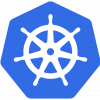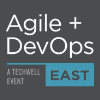The Latest
 |
A Primer on Continuous Testing[article] Continuous testing shortens feedback loops through automated testing that occurs throughout the development lifecycle—hence "continuous." Testing and QA become the responsibility of everyone working on the software, not just testers. Let's look at some proven practices from organizations that have used continuous testing effectively to realize tangible benefits. |
|
 |
Using Kubernetes for Container Orchestration in DevOps[article] Containerization has replaced virtual machines to a great extent because containers are lightweight and make efficient use of the OS kernel. Docker’s efficient nature helps with software development, testing, delivery, and deployment in a DevOps environment, and all the benefits of Docker also apply to Kubernetes. Let’s explore some of the additional agile and DevOps benefits you can gain by using Kubernetes. |
|
 |
5 Reasons Enterprise Test Automation Is So Challenging[article] Most organizations understand that test automation is essential for modern application delivery processes. They’re just not sure how to make it a reality in an enterprise environment without exorbitant overhead and massive disruption. Enterprise organizations typically achieve small victories, but the process ultimately decays due to challenges in five main areas. Understanding these challenges will help us overcome them. |
|
 |
Fitting In Regression Testing by Shifting QA Left[article] Fixing a bug in one area of the software may break something in another area. To detect whether defects have been introduced, we need to perform regression testing—executing certain test cases again to see whether a change has affected other existing features. But how do you make time for another testing cycle prior to every production release? You need to get QA involved earlier in the software development lifecycle. |
|
 |
Adapting to Working from Home: A Conversation with Gene Gotimer[interview]
Video
Gene Gotimer, principal consultant at Coveros, chats with TechWell community manager Owen Gotimer about the challenges individuals and organizations face while we work from home during this global pandemic and how getting thrown into remote work could shape our future. |
|
 |
Lightning Strikes the Agile + DevOps East Keynotes[video]
Video
Lightning Talks are a series of five-minute talks giving speakers the opportunity to deliver their single biggest bang-for-the-buck idea in a rapid-fire presentation. Watch all the Agile + DevOps East 2019 lightning keynote presentations in one place—and have some fun at the same time. |
|
 |
Whole Team Quality: A Conversation with Melissa Benua[interview]
Video
Melissa Benua, director of engineering at mParticle, chats with TechWell community manager Owen Gotimer about the importance of whole team quality, how to get started using the test pyramid, and how developers can start writing testable code. |
|
 |
A Tester's Role in AIOps[article] “AIOps” stands for “artificial intelligence in IT operations,” or using machine learning and data science to solve IT problems. AI can help with many IT functions, including detecting and remediating outages, monitoring availability and performance, and IT service management. Like with DevOps, a tester plays an important part with AIOps—they just have to determine what that is. |
|
 |
Containers, Docker, and Kubernetes 101: A Conversation with Ryan Kenney[interview]
Video
Ryan Kenney, senior consultant at Coveros, chats with TechWell community manager Owen Gotimer about the difference between containers, container engines, and container orchestration; using containers in your CI/CD pipelines; and the cost of security. |
|
 |
How Continuous Testing Is Done in DevOps[article] DevOps does speed up your processes and make them more efficient, but companies must focus on quality as well as speed. QA should not live outside the DevOps environment; it should be a fundamental part. If your DevOps ambitions have started with only the development and operations teams, it’s not too late to loop in testing. You must integrate QA into the lifecycle in order to truly achieve DevOps benefits. |
|
 |
The Power of Communication: A Conversation with Jaimee Newberry[interview]
Video
Jaimee Newberry, co-founder and CEO at Picture This Clothing, chats with TechWell community manager Owen Gotimer about the power of communication, the HIPPO in the room, and how to create psychological safety in brainstorming sessions. |
|
 |
What Is Scrum?: A Conversation with Ryan Ripley[interview]
Video
Ryan Ripley, professional Scrum trainer at Scrum.org, chats with TechWell community manager Owen Gotimer about what Scrum is, some of the most common Scrum antipatterns, and the importance of connecting your Scrum team with your customer. Continue the conversation with Ryan and Owen (@owen) on the TechWell Hub (http://hub.techwell.com/)! |
|
 |
Making DevOps Evolution Happen: A Conversation with Helen Beal[interview]
Video
Helen Beal, DevOpsologist at Ranger4, chats with TechWell community manager Owen Gotimer about making your DevOps evolution happen, micro-bonus programs, and the neuroplasticity of squirrels. Continue the conversation with Helen (@Helen Beal) and Owen (@owen) on the TechWell Hub (hub.techwell.com)! |
|
 |
Applying Data Analytics to Test Automation[article] Testers gather lots of metrics about defect count, test case execution classification, and test velocity—but this information doesn't necessarily answer questions around product quality or how much money test efforts have saved. Testers can better deliver business value by combining test automation with regression analysis, and using visual analytics tools to process the data and see what patterns emerge. |
|
 |
Become the Person Everyone Wants to Work With[presentation]
Slideshow
Drawing from her own experiences across twenty years in a range of industry roles, Jaimee Newberry shares true stories of at least a dozen tiny but important things she still sees every day that could make all the difference in how people work with you. |
Jaimee Newberry
|








